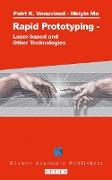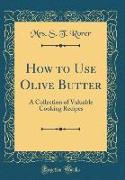Rapid Prototyping
BücherAngebote / Angebote:
Since the dawn of civilization, mankind has been engaged in the conception and manufacture of discrete products to serve the functional needs of local customers and the tools (technology) needed by other craftsmen. In fact, much of the progress in civilization can be attributed to progress in discrete product manufacture. The functionality of a discrete object depends on two entities: form, and material composition. For instance, the aesthetic appearance of a sculpture depends upon its form whereas its durability depends upon the material composition. An ideal manufacturing process is one that is able to automatically generate any form (freeform) in any material. However, unfortunately, most traditional manufacturing processes are severely constrained on all these counts. There are three basic ways of creating form: conservative, subtractive, and additive. In the first approach, we take a material and apply the needed forces to deform it to the required shape, without either adding or removing material, i. e. , we conserve material. Many industrial processes such as forging, casting, sheet metal forming and extrusion emulate this approach. A problem with many of these approaches is that they focus on form generation without explicitly providing any means for controlling material composition. In fact, even form is not created directly. They merely duplicate the external form embedded in external tooling such as dies and molds and the internal form embedded in cores, etc. Till recently, we have had to resort to the 'subtractive' approach to create the form of the tooling.
Folgt in ca. 15 Arbeitstagen




